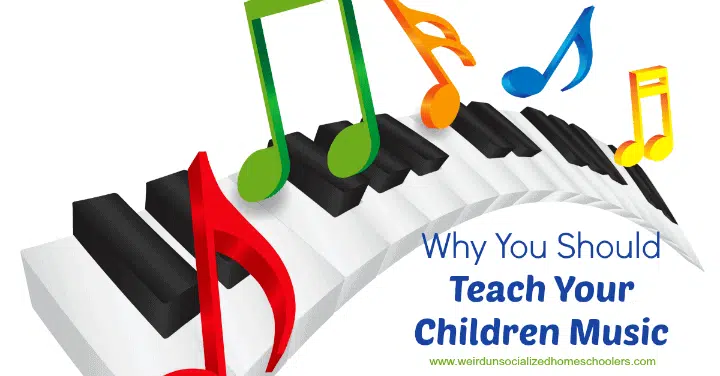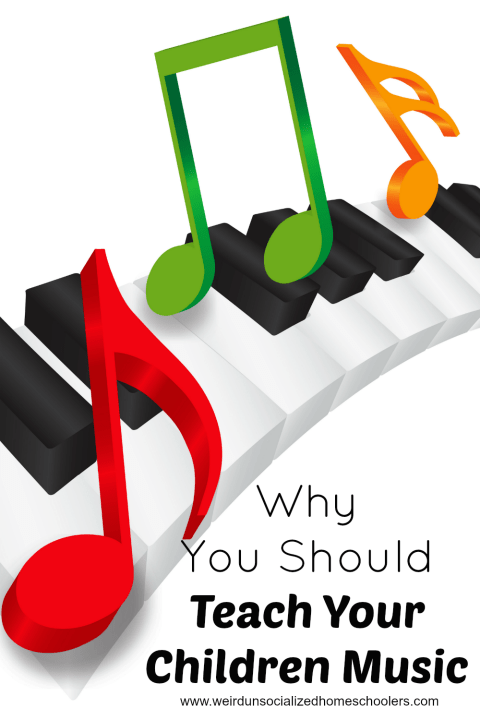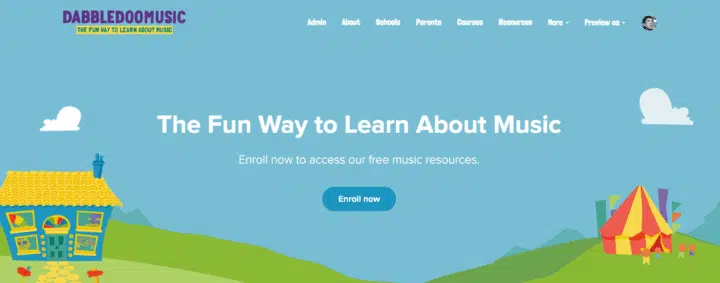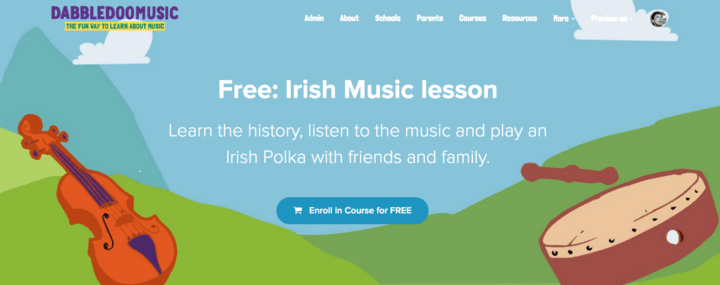Why You Should Teach Your Children Music
As a music teacher, one of the most common things that adults say to me is “I could never play music; I am just not musical.”
From years of experience in teaching children, individually and in groups, it is clear that as children, we all believe we are musical. The older we get, the more we are convinced that we are unmusical.

When I host family music workshops across Ireland, I begin by asking, “Are there any musicians here today?” Invariably, all of the children put their hands in the air. All of the adults keep their hands down.
So, when thinking about teaching your children music, the first thing to appreciate is that they have musical potential and enthusiasm that is beyond our comprehension. Their ability to learn, remember and understand music and their incredible capacity for creativity is a perfect starting point for a subject that will help to bring happiness and success to their lives.
The Benefits of Music Education
Research has shown that music has a broad range of benefits that can facilitate learning and skill acquisition in many areas of a child’s development.
Creative Thinking and Problem Solving
As Sir Ken Robinson points out in his famous TedTalk about creativity, we are not certain what the future holds, so how do we prepare our children for it?
He suggests that we encourage them to think creatively, solve problems and be prepared to adapt. These skills are those that the arts and music can give children above all other subjects. It is not only beneficial for their future place in the working world but also helps them to deal with changes in their personal lives.
Relationships, Empathy and Shared Experience
For me, one of the most important aspects of music is that it encourages empathy. When people are playing music together, it is important that they listen to and try to understand each other.
Music not only encourages understanding with the people around us but with the people of the world through cultural empathy. Although music is different in every culture, it is something that we can all share and experience equally, no matter where we are from.
The shared experience of music-making is one that brings people closer together. Music is an important part of ceremonies across different cultures for this very reason.
Music can bring us together in times of celebration or times when we need comfort. Sharing musical experiences is a way to build friendships in a fun environment with everyone focused on a shared vision.
Self Esteem
Music is a powerful way to promote self-esteem through performance and composition. Learning and performing a piece of music is a hugely satisfying achievement and one that children can share with others.
Encouraging children to improvise and create their own music is another great way to build self-esteem. This doesn’t necessarily mean writing a full song or solo piece. It can be as simple as making up a short melody or rhythm or rewriting the words to a well-known song.
Language Development
Music is a great way for children to reinforce their natural ability to analyze and decode sounds. This ability is vital for the development of language skills. Music provides a fun way to practice both listening to and making vocal sounds.
Music also gives children an opportunity to be creative with sounds and explore the full range of possibilities that the voice has.
Memory and Learning
Long- and short-term memory can be developed through repetition of songs and actions, whether using the voice or instruments.
Learning a simple song gives the brain a full memory workout with words, notes and rhythm all rolled into one activity. Action songs can also add the extra dimension of physical memory and are ideal for younger children.

Music is For Life
Most importantly, music is something that children will have with them for the rest of their lives. The goal of music education should be to encourage children to appreciate and enjoy the hugely positive benefits that music can have on their lives and their relationship with the world around them.
Through music, children have the potential to develop as individuals and as part of a profound shared experience that fosters self-esteem, empathy, creative thinking, and collaboration.
How To Approach the Music Curriculum
Best practices throughout the world in music education recommend giving three distinct areas of study equal attention:
1. Listening and Responding
This refers to active listening where you, the instructor, are trying to elicit physical, verbal or emotional responses. Listening to a range of music of different styles, familiar and unfamiliar is an important part of music education.
The best method is to listen together and then ask your children:
- Where is it from?
- What instruments do I hear?
- What is the music saying?
- How does it make me feel?
- Is it fast or slow? Why?
Then listen again, and repeat!
2. Performing
The voice is an instrument that we all have and one that should be used as much as possible in music education. Encourage your children to sing at every opportunity – in the car, in the kitchen, in a local choir. All singing is beneficial to their musical development.
Using simple instruments to play along with songs is a perfect way to encourage young children to develop musical skills. Again, no matter how simple the instrument or the piece of music, playing an instrument is all about practice, repetition, and enjoyment.
3. Composing
Children should be encouraged to explore their creativity and uniqueness through composition. This can be anything from making up new sounds using their voice to writing a song with instrumental accompaniment.
Whatever your musical experience, you can share the wonderful gift of music with your children through regular music making. No matter how simple, every musical activity is helping your child to enjoy the benefits of music in their learning and personal development.
DabbledooMusic
At DabbledooMusic we have made musical performance and composition as accessible and fun as possible, so you can enjoy musical activities that will become a highlight of your week. We’ve designed Dabbledoo for all levels of musical experience so don’t worry if you haven’t studied at a music academy!
You can now enroll in our online school to gain access to our free resources at DabbledooMusic.com
Or you can try a free Irish Music Lesson.
How do you like to incorporate music study in your homeschool?
This post is linked to the Hip Homeschool Hop.

Shane Mc Kenna is a musician, music teacher and composer based in Dublin, Ireland. He studied a Bachelor Music Education and a Masters in Music and Media Technology in Trinity College, Dublin where he became a leading researcher and developer in the area of new musical notation in performance and education. Shane founded DabbledooMusic in 2012 with visual artist Killian Redmond and last year received an award from Social Entrepreneurs Ireland for his contribution to education in Ireland.
This article was written by a Weird, Unsocialized Homeschoolers guest author. See the author's full bio in the body of the post.




